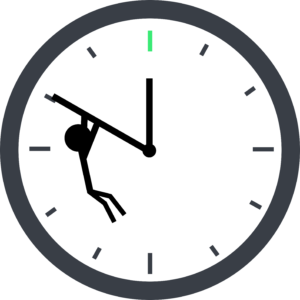
The Science of Ageing | Understanding How and Why We Age
Ageing is a universal process, experienced by every living being, yet it remains one of life’s greatest mysteries. Why do we age? What happens in our bodies as we grow older? And can science help us slow the clock?
Understanding the science of ageing not only satisfies our curiosity but also provides insights into how we can live longer, healthier lives. In this guide, we’ll explore the biological mechanisms of ageing, the theories behind why we age, and how cutting-edge research is transforming our understanding of this natural process.
The Biological Basis of Ageing
Ageing begins at the cellular level, where subtle changes accumulate over time, gradually impacting the body’s ability to function efficiently. Here are some key biological processes that drive ageing:
- Cellular Ageing
Every cell in your body has a finite number of times it can divide, a limit known as the Hayflick limit. Over time, as cells divide, they accumulate damage, becoming less efficient and eventually entering a state called senescence, where they stop functioning but don’t die. These senescent cells can contribute to inflammation and age-related diseases.
- Telomeres
Telomeres are the protective caps at the ends of your chromosomes. Each time a cell divides, its telomeres shorten. When they become too short, the cell can no longer divide, leading to cellular ageing. Telomere shortening is considered a key marker of ageing.
- Oxidative Stress
As cells produce energy, they generate by-products called free radicals, which can damage DNA, proteins, and lipids. This process, known as oxidative stress, accelerates cellular ageing and contributes to chronic diseases.
- Mitochondrial Function
Mitochondria, often called the powerhouses of the cell, produce energy essential for life. Over time, mitochondrial efficiency declines, leading to reduced energy production and increased free radical generation, further driving the ageing process.
Why We Age: Theories of Ageing
Scientists have proposed various theories to explain why we age. While no single theory provides all the answers, they offer valuable insights into this complex process:
- The Wear-and-Tear Theory
This theory suggests that ageing results from the cumulative damage to cells and tissues over time, much like how a machine wears out with use.
- The Free Radical Theory
Proposed by Dr. Denham Harman in the 1950s, this theory posits that free radicals, unstable molecules generated during energy production, cause oxidative stress, leading to cellular damage and ageing.
- The Programmed Ageing Theory
According to this theory, ageing is a programmed process controlled by our genes, much like other biological functions such as growth and reproduction.
- The Inflammation Theory
Chronic, low-grade inflammation, often referred to as inflammaging, plays a significant role in ageing. This persistent inflammation can damage tissues and organs, contributing to age-related diseases.
How Ageing Impacts the Body
As the biological processes of ageing progress, they manifest in various physical, cognitive, and emotional changes:
- Physical Changes: Reduced muscle mass and strength, slower metabolism, and decreased skin elasticity.
- Cognitive Changes: Declines in memory, processing speed, and problem-solving abilities.
- Emotional Changes: Increased susceptibility to stress, anxiety, or depression, often influenced by lifestyle factors or social isolation.
While these changes are natural, they don’t have to define ageing. Understanding the science can empower us to mitigate their effects.
The Role of Science in Healthy Ageing
Advances in longevity research are reshaping how we view and manage ageing. Here are some key areas of scientific exploration:
- Cellular Therapies
Research into senolytics, drugs that target and remove senescent cells, shows promise in reducing inflammation and slowing age-related decline.
- Telomere Preservation
Scientists are exploring ways to lengthen telomeres, potentially delaying cellular ageing and extending healthspan.
- Mitochondrial Research
Boosting mitochondrial function through compounds like NAD+ precursors is an area of active investigation, aimed at increasing energy production and reducing oxidative stress.
- Anti-Ageing Biomarkers
Testing for biological markers of ageing, such as telomere length and inflammation levels, provides insights into individual ageing trajectories and helps guide personalised interventions.
Embracing the Science of Ageing
Understanding why and how we age isn’t about stopping the clock—it’s about slowing it and making the most of every stage of life. By combining insights from science with actionable strategies, you can take control of your ageing process and enjoy a longer, healthier, and more fulfilling life.
At Slowing the Clock, we’re dedicated to bringing you the latest research and practical tips to optimise your healthspan. From diet and exercise to mental health and preventative care, explore our resources to start your journey today.